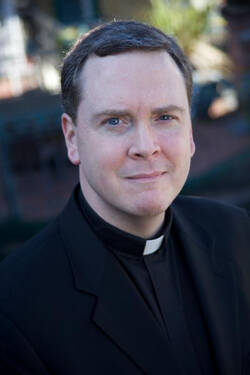If Jefferson Davis had visited Lowell, he might have had second thoughts about secession. After all, there is a reason why Lowell is known as the cradle of the industrial revolution: In 1860, the Massachusetts mill town had more cotton spindles than all 11 states of the future Confederacy combined. The South grew a lot of cotton, but it lacked the facilities to process and ship it to consumers. As a result, most of the Confederacy’s railroad lines ran from south to north, a situation that inhibited the movement of the Confederate armies from east to west, a not insignificant factor in the South’s eventual defeat in the Civil War.
Those thousands of spindles that lured King Cotton to Lowell also attracted hundreds of thousands of immigrants over the course of a century—Germans, French-Canadians and Irish—all in search of work and what a later generation would call the American Dream. The family of Jack Kerouac was among those “huddled masses yearning to breathe free.” Indeed, Saint Jean Baptiste, the parish church of Lowell’s Franco-American community, featured prominently in Kerouac’s mystical visions, writes James T. Keane in this week’s issue. It seems that Kerouac was much more than a whiskey-sodden ne’er-do-well; in fact, he thought of himself as a “strange solitary crazy Catholic mystic” in search of holiness.
Only God knows whether Kerouac found what he was looking for. Still, there is something we can learn from his idiosyncratic, wayward search. One question—a thread woven throughout the fabric of Kerouac’s narrative—is the one put to Jesus in the Gospel of Luke: “Who is my neighbor?” In the parable Jesus tells in response, the central character is a Samaritan, an outsider, the product of mixed races, mixed marriages and mixed customs. He might as well be from Lowell, one of America’s first great melting pots. What Jesus points out is that the Samaritan, the unlikely, seemingly dissimilar stranger, is also our neighbor, as much as, if not more than, any one of our kith and kin. In other words, there are no foreigners on the road to holiness. That is a radical notion of neighborliness.
In the context of globalization, the question “who is my neighbor” is even more urgent, if not more complex. As they did 150 years ago, goods and people still move from south to north, only now the migration is a hemispheric phenomenon. The huddled masses still come in search of a better life; only now they are more likely to come from the new world than the old. Kerouac believed that if you want to know where someone is headed, then you need to know where he or she is coming from.
So in this issue of America, we look to our south, to our neighbors in Latin America and Haiti. We also look to the “strangers” who are already in our midst: Sister Helen Prejean tells us how the radical Christian notion of neighborliness has transformed the Catholic view of the most “foreign” of foreigners among us: those awaiting state-sanctioned execution.
In a sign of post-industrial times, Keane tells us, Saint Jean Baptiste Parish closed its doors in the early 1990s. Yet throughout the states of the former Confederacy, Catholics can’t build parishes fast enough. Since 1962, the church has created more than 20 new dioceses in the South and Southwest, some in the very cities mentioned by Kerouac in On the Road. The U.S. church is itself on a kind of journey across America, not in pursuit of the American Dream, of course, but in search of God’s dream: “that all may be one.” Indeed, Jack Kerouac’s description of his most famous work could just as well describe the journey of the American church: “a story about Catholic buddies roaming the country in search of God.”








